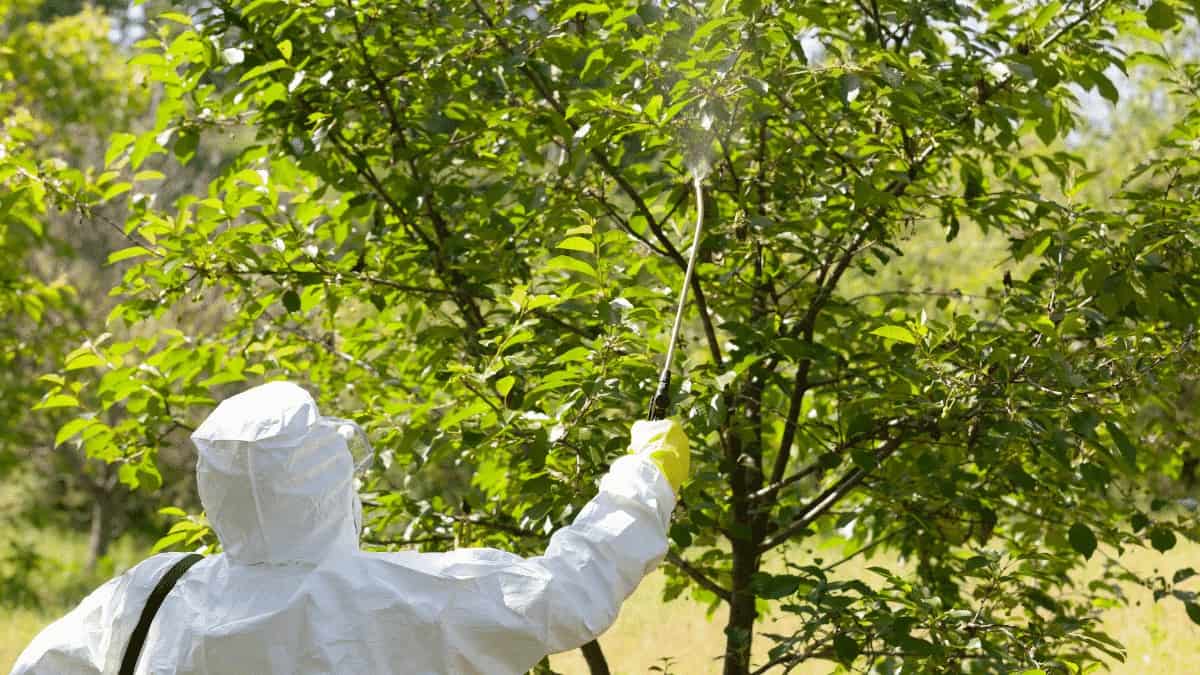Answer: Mostly, yes, but it strongly depends on the fertilizer used.

There’s a saying from Michael Pollan that goes, “Came from a plant, eat it; was made in a plant, don’t.” This summarizes what the debate is. While it seems like a simple argument, we must understand the broader subject to resolve it. We need to answer the first question: what is organic food, and what’s conventional (non-organic)?
Organic food is produced with no man-made fertilizers, pesticides, or additives. The soil on which organic food is harvested must be free of these chemicals for at least 3 years. Also, the use of genetically modified organisms (GMOs) is prohibited. On the other side, we have conventional farming (non-organic). That means usage of man-made chemicals is used during the farming process. Let’s first start with the difference between conventional and organic food.
Now let’s cross-examine conventional and organic food to put this debate to bed.
Table of Contents
Conventional vs. Organic Food
It’s in human nature to stand for something we believe in. This often creates opposing views. The debate around conventional and organic food is another example of this dividing character flaw we nurture. What are the differences between conventional and organic, and why should we eat one over the other?
Three Differences Between Conventional and Organic Food
- Different farming process
Conventional farming uses artificial fertilizers, pesticides, and additives to achieve optimal results. This means having a bigger and better-looking product and a more lasting one. On the contrary organic farming uses no man-made fertilizers, pesticides, and additives. This comes at the expense of the shelf life of these products. But the quality is unquestionable.
- Soil fertilizing
In conventional farming, a tiny portion of animal waste is used. Therefore alternative fertilizing techniques and products are applied to stem the growth. Organic food uses soil fertilizers from animal and plant waste, such as manure, bone meal, and fish and blood meal.
- Animal farming
Conventionally farmed animals have one purpose: maximum production. This often creates unpleasant living conditions. While, with organically farmed animals, their quality of life isn’t compromised. Instead, the animals are taken care of and are free to roam, while conventionally farmed animals are always locked.
To Eat or Not to Eat
Considering all of the above, you can easily conclude that organic food is far more suited for vegans. But is it really!?
When asking yourself whether, as a vegan, you can eat conventional food (non-organic), you need to think about the reasons which lead you to pursue this way of life. Let’s list and elaborate one by one.
A Healthier Way of Life
Is organic healthier than conventional food?
Organic food is healthier than conventional one. There’s a straightforward reason for that: restricted use of man-made fertilizers. Also, organic food contains a much lower pesticide level. Evidence shows that common pesticides reduce cognitive function.
Besides man-made fertilizers, pesticides, and additives, organic agriculture prohibits GMO crops, sewage sludge, and irradiation. Also, the animal waste used in organic farming needs to be from organically farmed animals.
On one side, you have conventional farming, which is not restricted. On the other side, organic farming prohibits pretty much everything that is potentially bad for your health.
Environmental Concerns
The enormous use of pesticides in conventional farming leads to poisoning not only the soil but rivers, lakes, and in the end, wildlife. This makes it very difficult for vegans to consume the food, leading to animal habitat endangerment. This makes conventional food terrible for the environment.
Animal Protection
While reading the above, you may ask yourself what you can actually eat.
There is a simple solution under the name of VEGANIC. Namely, this is the next level of organic farming. Veganic agriculture is solely based on plant fertilizing techniques. Like organic, veganic agriculture doesn’t use pesticides, chemical fertilizers, or GMOs. But that is not where they stop. Veganic agriculture goes another mile in protecting the animals and the environment.
Veganic agriculture renounces the use of animal products as fertilizers. Usage of blood meal, bone meal, feather meal, fish meal, fish emulsion, shrimp compost, and manure is forbidden.
Conclusion
Some vegans will tell you that they eat non-organic food because it doesn’t use animal products during farming and is cheaper. But is the only reason you became vegan is not to eat animals? What about their habitat? And what about your health and the environment? Suppose you want to be a dedicated vegan, and I mean a true vegan. In that case, you shouldn’t support food production, leading to the destruction of animal habitats.




